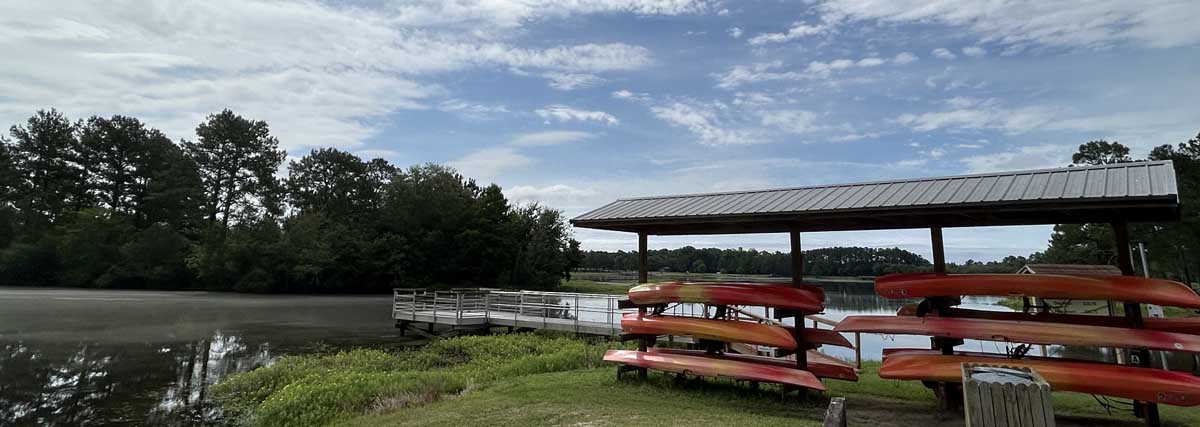Politics
Georgia State Parks Raise Fees Amid Revenue Challenges

The Georgia Board of Natural Resources has approved a significant increase in parking fees at state parks, a decision that reflects ongoing financial pressures within the state’s natural resources management. Effective potentially as early as January 1, 2026, the daily per vehicle fee will rise from $5 to $10, while the annual pass will increase from $50 to $70. This marks the first adjustment to parking fees since 2009.
Veterans will also see a fee hike, with the daily pass increasing from $3.75 to $7.50 and the annual pass going from $37.50 to $52.50. Critics of the increase, including Sherman Neal II from the Sierra Club of Georgia, argue that Georgia should follow the example of states like Alabama, which offer free access to veterans and active-duty military personnel. Neal emphasized the financial struggles of many servicemembers in Georgia, stating that nearly half earn less than $33,000 annually.
Haley Chafin, the external affairs manager for the Georgia Department of Natural Resources, indicated that there is no specific timeline for implementing these changes. The board’s decision comes amid a broader review of revenue generation within the department. Recent audits have suggested that the state parks could enhance their revenue through various means, including the introduction of surge pricing for campsites, cabins, and golf courses, as well as varying fees based on demand.
Financial Pressures and Maintenance Needs
The need for increased funding has been underscored by Damon Kirkpatrick, president and CEO of Friends of Georgia State Parks and Historic Sites. He acknowledged the discomfort of raising fees but stressed that maintenance costs have risen significantly since 2009. “At Friends, we understand how important it is to keep our parks affordable and accessible for everyone, but we also recognize that the cost of caring for them has risen dramatically in the past 16 years,” he stated.
The park pass fees serve as the sole dedicated source of funding for maintenance and repairs within Georgia’s park system. Kirkpatrick highlighted ongoing maintenance backlogs, even as new projects, such as a visitor center at Vogel State Park, enhance the parks’ appeal.
Before the board’s unanimous vote, member Duncan Johnson reflected on the long duration without a fee increase, noting, “I have been here 11 years, and out of those 11 years, I have always fought increases in any fees because I don’t like imposing them, but I also think we’ve gone 16 years without any increase.”
Future Pricing Strategies and Public Access
The recent audit by the state auditor’s office proposed several strategies to optimize revenue, including adjusting pricing based on demand. The parks division has already implemented limited variations in rates, but recommendations suggest further changes. For instance, states like South Carolina and Alabama utilize reservation systems that adjust pricing according to occupancy levels. The auditors recommended that Georgia increase fees for popular amenities during peak demand periods, such as summer months.
Additionally, the auditors pointed out that the parks could benefit from varying camp site fees based on desirability and demand, particularly for prime locations near water. While the parks division agrees with the auditor’s recommendations for increasing pricing variations, they also indicated a commitment to maintaining consistency across the system to ensure public accessibility.
The proposed adjustments also extend to state park golf courses, with recommendations to raise the price of annual memberships and green fees during busy periods, aiming to align more closely with standard rates at other public golf courses. Furthermore, introducing no-show fees for golfers who fail to appear for booked tee times is also under consideration.
As these changes take shape, the Georgia Board of Natural Resources faces the challenge of balancing the financial needs of park maintenance with the imperative of providing accessible natural spaces for all residents.
-

 Lifestyle1 week ago
Lifestyle1 week agoSend Holiday Parcels for £1.99 with New Comparison Service
-

 Science2 months ago
Science2 months agoUniversity of Hawaiʻi Leads $25M AI Project to Monitor Natural Disasters
-

 Science2 months ago
Science2 months agoInterstellar Object 3I/ATLAS Emits Unique Metal Alloy, Says Scientist
-

 Science2 months ago
Science2 months agoResearchers Achieve Fastest Genome Sequencing in Under Four Hours
-

 Business2 months ago
Business2 months agoIconic Sand Dollar Social Club Listed for $3 Million in Folly Beach
-

 Politics2 months ago
Politics2 months agoAfghan Refugee Detained by ICE After Asylum Hearing in New York
-

 Business2 months ago
Business2 months agoMcEwen Inc. Secures Tartan Lake Gold Mine Through Acquisition
-

 Health2 months ago
Health2 months agoPeptilogics Secures $78 Million to Combat Prosthetic Joint Infections
-

 Lifestyle2 months ago
Lifestyle2 months agoJump for Good: San Clemente Pier Fundraiser Allows Legal Leaps
-

 Science2 months ago
Science2 months agoMars Observed: Detailed Imaging Reveals Dust Avalanche Dynamics
-

 Health2 months ago
Health2 months agoResearcher Uncovers Zika Virus Pathway to Placenta Using Nanotubes
-

 Entertainment2 months ago
Entertainment2 months agoJennifer Lopez Addresses A-Rod Split in Candid Interview









